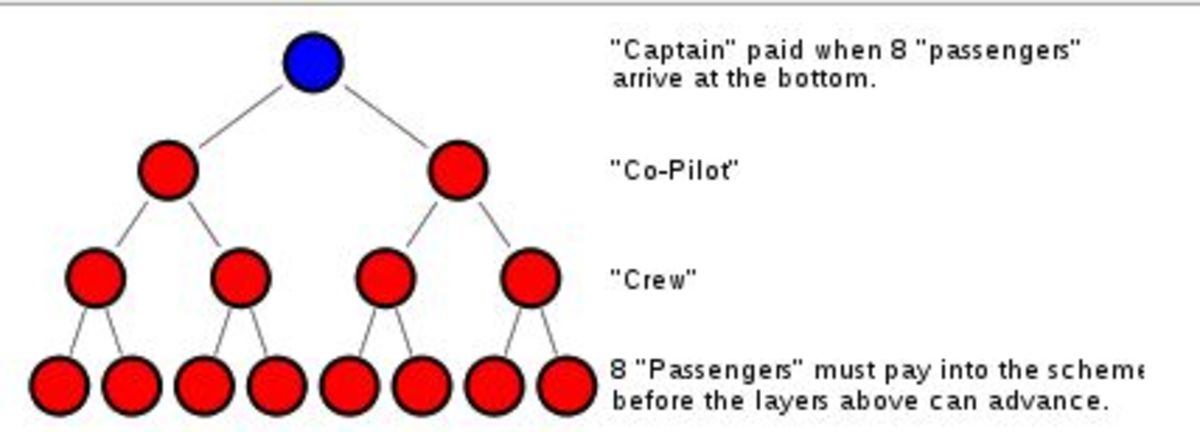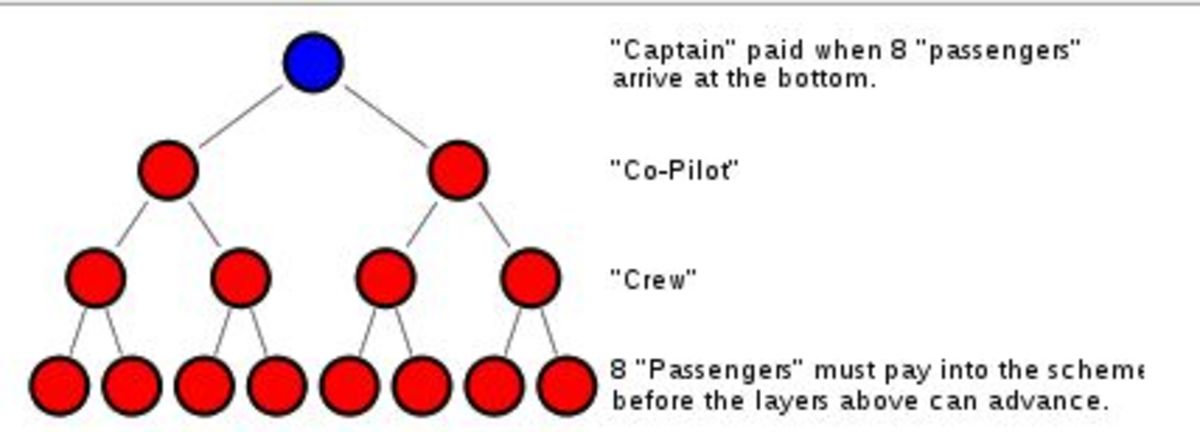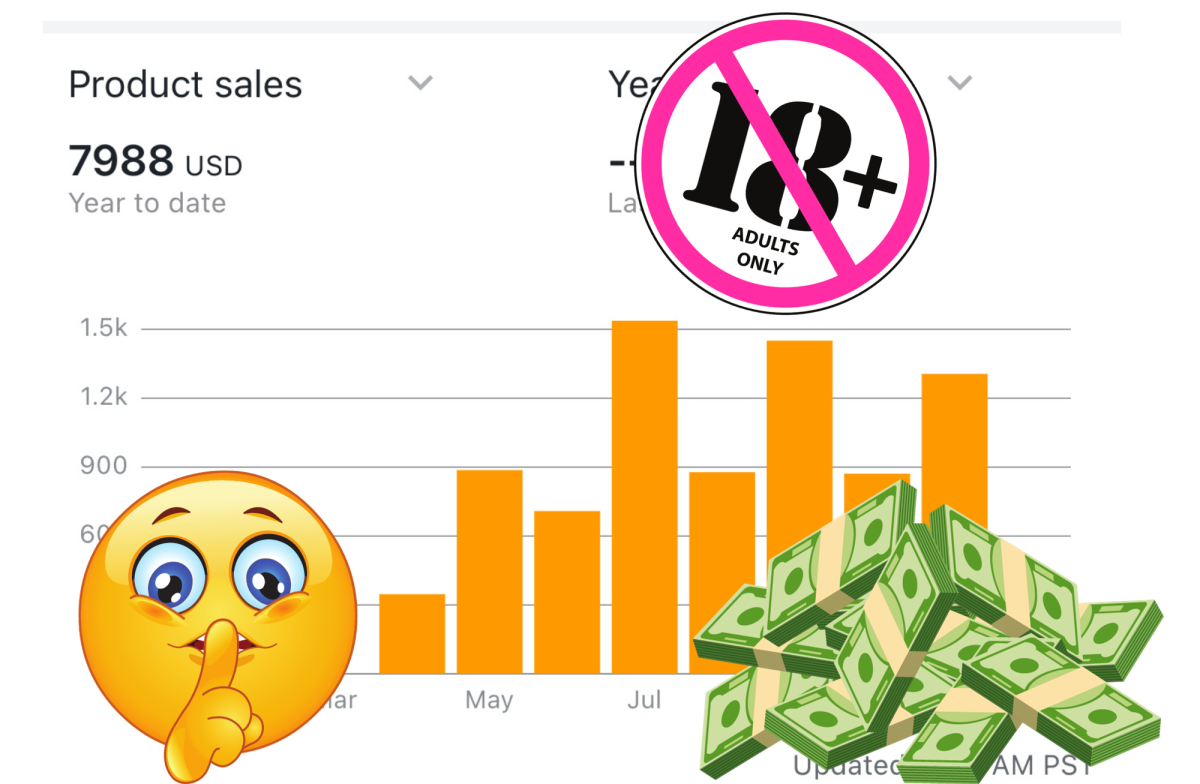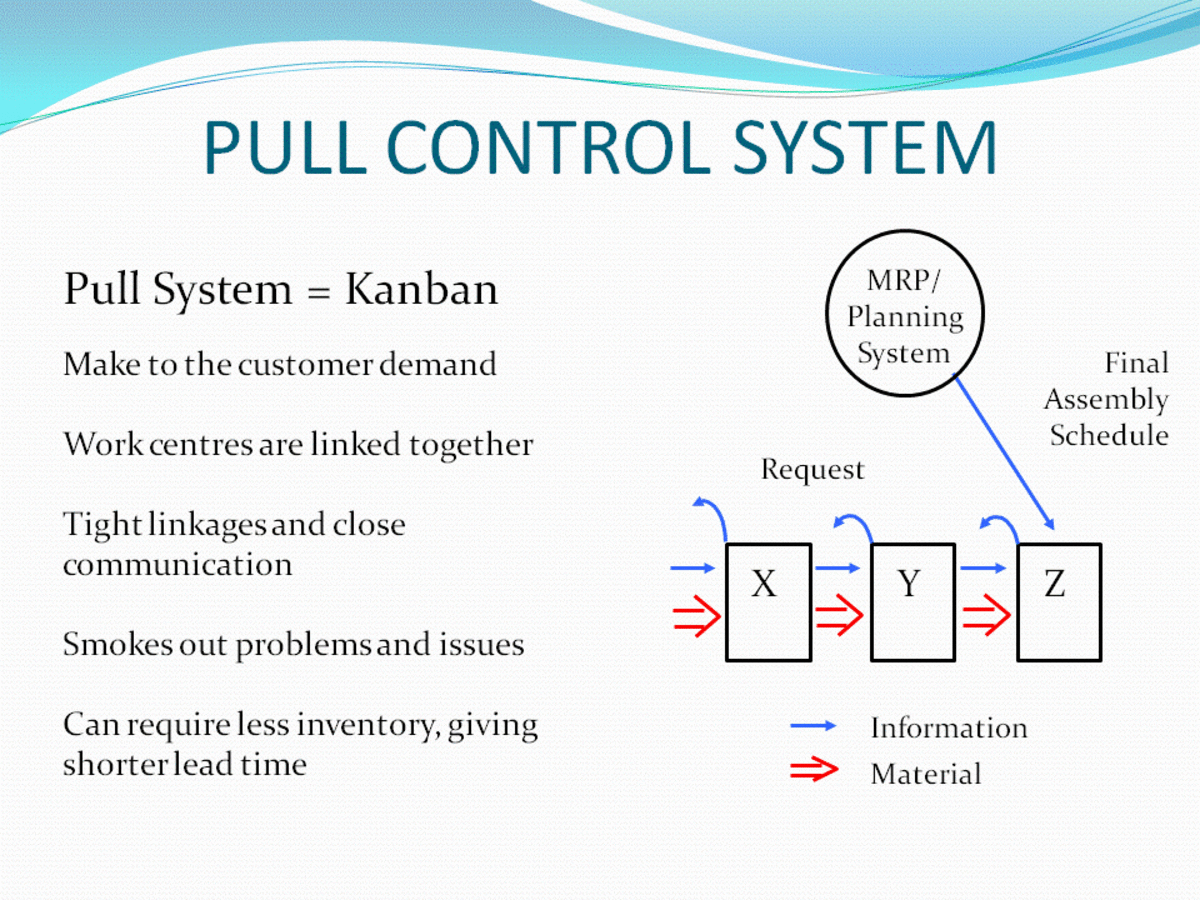Market Saturation and 14 More Network Marketing (MLM) Myths Busted. There is a lot of money scheme, few can make money
Myth versus Reality
There are many myths about MLM. The truth is out there, but you have to look for them. Many of them are outright lies spread by unscrupulous "leaders" who are out to score recruits, and some are spread by pseudo-MLM scams (actually pyramid schemes), also to score recruits. All these lies aim at disrupting a proper cost/benefit analysis, by mis-representing the three variables: cost, risk, and value. The following equation is invented by Daniel Bernoulli back in 1800's, but following you'd recognize as almost "common sense".
if cost < (risk * value) then go else stop
You can find a full analysis of how a scam would misrepresent the three variables, but here's a quick recap:
risk is the inverse of odds of getting the "value". For a normal job, the risk is low, probability of winning is high, like 0.99 (your boss may be a crook). For a lottery, the risk is high, probability of winning low, like 1 in 50 million.
value is what you get from it. For a normal job, it'd be the bi-weekly salary check. For a lottery, it'd be the grand prize (for example)
cost is what you "pay" for the value. For work, it's hours put in. For lottery, it is cost of the ticket.
All of the myths are misrepresenting or ignore one or more of the three variables involved. We will discuss each myth, the reality behind it, how they affect the variable.

Myth: MLM is a Great Income Opportunity
This myth can also appear as "easy money", "$10000 per week", "life-changing income", as well as personal testimonials like "I made $10000 using the _____ system!"
Studies on legitimate MLMs shows that 95-99.9% of participants actually lost money. In an informal survey of Nikken distributors, less than 1% is making comfortable money (i.e. the top two levels, platinum and gold), everybody else is "silver", barely making any or actually lost money.
Almost every MLM out there is this way. Perhaps SOME (1% or so) of the participants can achieve that high of income, but what are your odds of doing so? The risk is undervalued.
Testimonials are the most misleading of all. The testimonial meant to IMPLY that the system works, but what it really showed is that it worked for ONE PERSON. Perhaps that person have qualities that complemented the system that helped him to be successful. It may not be the system at all. Perhaps he just got in early and is lucky to have good downlines. You do not know the circumstances that made the system work for the people making the testimonials.
There is not enough data to make a determination if the MLM system actually works, and thus, is indeed a "great income opportunity". The risk and cost are ignored.
Consider this: Do some math... Assume the whole thing is legal: what is the margin on each product? If you set a goal of $50,000, how much sales must your downlines make to make you that much money? If you know how many sales is your upline making a week, you can calculate how much s/he sells per year, and then figure how many people you need to recruit to make your sales target. What are your chances recruiting that many people who are as good as your upline? How long will that take and how much will that cost?
Reality: MLM is a great income opportunity for some people, depending on right place at right time, some luck, and a lot of hard work
Myth: Any One Can Make a Good Income with MLM
This myth can also appear as "It's easy, people around the world are doing it", "we already have X members around the world", and "I did it so you can too"
While there are some participants, such as the top distributors, that makes a lot of money, those are the tip of the iceberg, and there are a lot more below the surface that made no money. They don't tell you what are your odds of getting that high in most places. When you find out, the results may be shocking... 95-99% of MLM participants do NOT make money. So the risk is seriously undervalued.
This is what is known as genetic fallacy: if one of us can do it, then all of us can do it. Theoretically, anybody born in the US can be the US president, but who among us actually have a chance? Only one can be president. What are the odds?
It also failed to mention how much hard work and luck the top distributor had to get where s/he is.
Consider this: If MLM is this easy, why isn't the world full of millionaires already? It is DIFFICULT, and that they neglect to tell you.
Reality: Someone Can Make a Good Income with MLM, but it will probably not be you.
Myth: MLM is a Long-Term Commitment, Not a Get-Rich-Quick Scheme
Most MLMs are marketed as a get-rich-quick scheme, or alternately, a get-rich-do-little scheme. Even those who are honest won't tell you their "churn rate", the amount of participants that quit or no longer participate, vs. the new participants recruited.
ACN, a well-known telecom company that had appeared on the TV Show "The Apprentice", released figures in Canada that revealed their "churn rate" in Canada is as high as 60%. That's right... 60% of their reps quit and were replaced by new reps.
In the four years in operation, ACN has maintained SAME NUMBER of customers, but had quadrupled the number of participants / distributors. Canadian government is contemplating whether to charge ACN as a pyramid scheme.
The risk and cost are serious understated.
Reality: MLM may not make you ANY money at all, even if you do all you can for it.
Myth: Join Now and Get in at Ground-Level of This Great Opportunity
This contradicts the earlier myth, that anyone can make good money in MLM. Apparently only early joiners can make money in MLM. After all, they would have the most downlines and get the most commission.
If the product is good, why would joining early and joining late matter?
Being an early adopter is very risky, as you don't even know if
the product they're pushing will actually sell, much less make any
money. The only ones buying them would be you (and your upline, AND any
one you recruit). Risk is understated or ignored.
Consider this: do you believe in the product? If it's that good, why haven't more people heard about it? What exactly makes it that good that makes you believe it? (Do NOT accept your upline's dogma, as the product must stand on its own)
Reality: Joining early at "ground-level" is very risky
Myth: MLM Requires Little Capital to Get Started, Compared to Other Business Models
While that is true to a certain extent, you need to consider the following:
1) Most participants are encouraged to buy a large "starter kit", usually a good selection of items to demonstrate, and stock of some popular products, as well as some initial training, usually several hundred dollars. While it *is* cheaper than a real business, it is still a significant amount.
2) By offloading the marketing costs to the participants, the marketing costs of this business are conveniently not mentioned, but it is "network marketing", so marketing costs are significant.
3) Many MLMs also have a set of "training courses" that cost even MORE $$$, and there are a ton of "marketing coaches" on the Internet that promise to teach you... for a fee.
4) Many MLMs encourage participants to "subscribe" to enough inventory (i.e. have some inventory sold to you automatically every month) whether you can sell them or not.
Perhaps the INITIAL investment is lower, but there are a lot of expenses that simply were not mentioned that quickly adds up.
Often, the training courses are the money makers, not the products themselves. The participant not performing well? Must need another course in marketing. Still not doing well? Try a course in motivation... etc. It's sometimes called the "hidden pyramid".
Consider this: MLM works by passing their marketing costs onto you. How much marketing cost are you estimating / anticipating? Your first few will probably be easy as you're spending your social capital (within your social circle) but once you move outside your social circle your cost will go up astronomically.
Reality: MLM have a lower starting cost because it leaves marketing costs up to individual participants, and other costs quickly add up.
Myth: You Can Control Your Own Schedule with MLM
A lot of people think MLM is something you can do part-time, supplements your regular job and all that. What they do not realize is that network marketing is a full-time job once you've exhausted your social circle (i.e. your friends and family).
Once you have exhausted your social circle, you'll be constantly recording Youtube videos trying to sound appealing, slaved to the phone making cold calls with a script trying to get people to bite, "manage" your downlines with meetings (real or virtual), set up "capture webpages" to capture e-mail addresses and send out e-mail pitches and recruiting phone calls, print cards and brochurs and "distribute" them yourself, taking potential recruits out to lunch, write articles extolling the virtues of your product/system, and repeated ad nauseum.
It is NOT a part-time job, even with help of the Internet. You can do it only part-time, but your "team" and your "leader" will probably be "inspiring" you to work harder.
Spending your "social capital" instead of your financial capital is still spending on marketing cost, just not one you would usually count. And once you've used them up, you will have to spend financial capital.
Consider this: How much time does your UPLINE spend on this MLM? How much did he spend initially when he joined?
Reality: Once you spent all your "social capital" on your friends and relatives, you have to spend real time and money to market the stuff to others outside of your circle, and that requires a lot more time investment.
Myth: If You Invest Time and Money You Will Be Successful in MLM
Success is NEVER guaranteed. There are always circumstances and luck involved. Right place, right time, right people, AND ability to do the right thing (or even to recognize it in the first place).
Marketing is not a mechanical process. You can't say "spend X dollars and Y hours and Z items will be sold". It doesn't work like that. Neither is success. Spending time/effort and money does NOT guarantee success. Anyone who promise you is lying or horribly naïve. If it's that easy to be successful, there would be no poor people in the world.
Also keep in mind that this myth can be used to imply that it must be "your fault" if you didn't make money. The system must be fine, you must be doing it wrong, your team/leader will say. That is a "false dilemma". Why can't it be something else's fault? Why can't it be the system's fault? Why can't it be nobody's fault, just bad timing or circumstances?
Consider this: if the upline is already so successful, why does s/he need you? Does he believe the later myth "Work hard in MLM now and you can earn residual income later with little to no work"?
Reality: Even Time and Money Spent Will NOT Guarantee Success in ANYTHING, not just MLM
Myth: MLM Products Are Very Profitable
This myth can also appear as "the product practically sell themselves", "the product is in heavy demand"
The market for such products is likely so limited that new participants quickly saturate the market and the whole thing collapses. If the product is reasonable, the huge markups in MLM lead to normal retail products in the same niche, killing the MLM market.
Remember Tahiti Noni juice? When that became popular, competitors start appearing, special "mixes" are developed, and now you don't see Noni juices any more. Now you have the story repeating with Mangosteen Fruit, Acai berry, and whatever "super-fruit" they "discover" next. You now also get good old pomegranate juice and other semi-exotic juices in regular supermarket shelves.
Profit is based on both number of sales AND profit per sale. Your profit per sale may be high, but when you can't make many sales the profit margin is meaningless.
Consider this: In marketing, one must consider size of the market, and how much $$$ it would cost to reach a portion of the market. In Network Marketing, the company pass on the cost of marketing AND quite a bit of their margin onto the participants. However, just how much of the market does the participant have access to, and how much does s/he have to spend to access it? Will the margin be enough?
Reality: MLM products may be very profitable, but you may not be able to sell very many of it.
Myth: MLM Product are New and Proprietary
The value of a product is mostly in the marketing. New stuff sounds exotic but good income can be achieved in almost anything. Coca-Cola had been successful in selling what is essentially sugar water for over a hundred years. In MLM, good income had been made selling very old-fashioned cosmetics and dietary supplements
The misrepresentation here is new=profit. Which is not always true. Not all new products succeed.
What's worse, most products that went MLM usually are either so niche that they were rejected by traditional markets, or they're so bland they decided to use alternate marketing such as MLM. If they are easy to market, they would be marketed via traditional means.
Consider this: most "new" products on the market are just remix of old stuff. Noni juice is now Acai berry juice and Mangosteen juice, or proprietary blends. Or new forms of old products.
Reality: New products don't always sell, and MLM products are often so niche they don't sell at all.
MLM Products Will Always Have a Market, There is No Saturation
The market for a product is ALWAYS finite, even consumable products such as health supplements and beauty products. The population of Earth is finite, and your marketing can only reach those in your social circle, and a little beyond it. What YOU can reach is finite. You can expand your reach by recruiting people with other social circles, but your reach is STILL finite.
Your own reach in the market is finite, and people around you are in the same circles, so what you do is having local overlap. If you recruit your downlines from the same social circle they will end up fighting each other for sales instead of expanding sales beyond their immediate social circle.
Consider this: You can expand your reach by expending marketing dollars. But how do you determine how much to spend and how far do you reach? Do you have enough data to form a proper cost/benefit analysis? How do you get such data?
This also conflicts with the earlier myth, that you should get in the "ground-level". If there is no market saturation, why would "ground-level" matter?
Reality: There is ALWAYS market saturation, because one's reach within the market is finite.
Myth: Work Hard in MLM Now and You Can Earn Residual Income Late with Little to No Work
Residual income in MLM relies on your downline's hard work... selling things by spending their own marketing $$$. It has nothing to do with your own hard work, unless you count recruiting as "hard work".
Unscrupulous recruiters for MLM rely on this "something for nothing" mentality. They are basically advocating leeching off someone else's salesmanship. That's not hard work at all. It's luck that they joined early and that downline is under them and not someone else.
Furthermore, few people are good salesperson. Most will be seduced by this "leader" mentality where you just sit there and watch money roll in. Nothing will be sold, and thus, nothing works.
Consider this: if everybody has the mentality of getting residual income, who's going to sell ANYTHING? Everybody would simply be out there recruiting, and nothing will be sold. Somebody have to be selling.
Reality: Living off someone else's sales sounds easy, but really makes you a lazy leech, and doesn't happen that often, esp. if everybody has the same mentality
Myth: Teamwork and proper team leadership is the key to success in MLM
Teamwork is often just a buzzword for indoctrination and personality cult. it creates a "us vs. them" mentality. As soon as you raise questions about the leader or the MLM itself the team will ostracize you, call you a traitor, and generally mentally abuse you in order to manipulate you into serving the leader / group. In other words, it turned into a cult.
The top leaders would usually have no personal time for you. They are too busy selling and recruiting people, instead of teaching you how to sell.
Imagine if you recruit your family and friends... and have them turn on you, or you on them. Many friendships and family ties were ruined over MLMs.
Even if your team if perfectly ethical and have a great leader who will teach you how to sell, remember, MLM / NM is about MARKETING, which means selling, and selling is NOT a team sport. You sell person to person. A team can inspire you, share some techniques, and so on, but it will be YOU who actually make sales. So you and your salesmanship is the key to success in MLM.
Consider this: what if the MLM turned out to be a failure or a scam? What will you say to your friends and family who joined? What will they say to you? What will you say to those who did not join, and what will they say to you?
Reality: You and your salesmanship is the key to success in MLM, not your team / leader.
Myth: MLM is Legal, Not a Pyramid Scheme
There are a LOT of pyramid schemes that disguise themselves as a MLM, often by adding some worthless products, and encourage participants to recruit instead of sell. Also, a legitimate MLM can be marketed the wrong way, by emphasizing the recruiting aspect instead of the selling aspect, turning it into a pyramid scheme.
A pyramid scheme is basically a "network" where participants are rewarded for ONLY adding participants to the network, and don't have to do anything else. It is illegal in almost every country in the world. A scam can use a relatively worthless product to disguise itself as a MLM, and emphasize the recruiting aspects, instead of the selling aspect. And if there is no product (sold to outside consumers), then it's definitely a pyramid scheme.
Consider this: no pyramid scheme will admit that it is a pyramid scheme. All of them will deny it. They will point at a bogus product as their "product". They will claim to be a 'club' instead of a MLM. They will even deny they are a MLM at all. Just because they *say* they are not a pyramid scheme doesn't automatically make it true. Instead, study the actions... actions speak louder than words. What is the primary method of income, selling or recruiting?
Reality: A lot of Pyramid Schemes disguise themselves as MLMs, and you have to know how to tell them apart.
Myth: Many Reputable Celebrities Have Their Own MLMs
While it is true that some notable famous people that own MLM companies, either directly or through a holding company, it simply acknowledges that MLM can be profitable, if run carefully (to prevent saturation) and ethically, but then the same can be said of ANY sort of marketing model, not just MLM.
This is basically an attempt to 'borrow credibility' and portray the industry as "_____ is joining MLM! It must be legitimate!" A few months ago wife of ex-CEO of Bank of America was ensnared in a MLM/Pyramid scheme. Someone else recruited her, and suddenly both her name and her husband's name are being used to recruit other people.
Consider this: If ____ launched a MLM company, that just mean THAT company may be reputable backed by that person's name recognition. It doesn't say anything about the rest of the industry, or another OTHER MLM companies.
Reality: It may be true that some celebrities are starting MLMs, but that says nothing about the MLM YOU are involved in, or how likely the MLM is likely to succeed.
Myth: MLMs are Often Champions of Worthy and Visible Causes
While there is nothing wrong with donating to worthy causes such as charities, it really means nothing. The Mafia supported local charities too. It does not excuse the crimes they had committed. The purpose of the donation is to make them look more "trustworthy". If they truly want to donate, they don't need to make a big deal about it.
A famous international scam for a year had claimed they donated to UNICEF, the UN children's fund on their website. The page was quietly unlinked one day and disappeared from the website, no explanation given. In other words, they lied to make themselves look more trustworthy.
Consider this: if they have extra money to donate, shouldn't they be returning the "profit" to all the distributors as bonuses, and let the individuals decide whether to donate or not?
Reality: Donation to charities does not prove company is trustworthy, and actually takes money away from the distributors.
Myth: Internet Marketing Is MLM
Internet marketing, such as SEO, pay-per-click, article spam, capture page, auto-responder, and so on are just that... Internet marketing mechanisms. They can be used to supplement regular marketing, but they in themselves do NOT replace MLM. All they do is automate some of the process of marketing and spread to larger audience, but then so can everybody else. It may be a little cheaper than print your own stuff and/or go door to door, but the idea is the same. It's just another "mechanism", like response cards, brochures, and so on.
It takes time to learn all those mechanisms, and how to best deploy them. Often you get contacts from way off out in the left field... Other side of the world like Indonesia or Bangladesh. Language barrier and all that. You'll also get a whole bunch of crazies.
Consider this: If Internet marketing is so easy, why doesn't the company just sell their stuff over the Internet, and cut all of you out as the middleman?
Reality: Internet Marketing is just a new media mechanism, like television, radio, newspaper, and so on. It is NOT a new type of marketing, but neither is it multi-level marketing.
Conclusion
I hope that you've gotten a dose of reality about MLM, and how it can affect your decision in joining a MLM or not. It is not my intent to discourage you from pursuing a position in a MLM business, but merely be realistic about the risks, the costs, and the value in the equation about the MLM opportunity so you can form a proper go/no-go decision.
Happy Selling.
More MLM Tips
- MLM Danger of Seeking Positivity and Avoiding / Igno...
Some MLM coaches and uplines tell you to - 7 MLM Myths Busted: Product does NOT mean legal / il...
Here are 7 myths about MLM's legality and what are the truth behind them. That MLM recruiter may have been passing you a myth instead of fact. - 9 signs Multi-Level Marketing MLM Opportunity is act...
Are you in a real MLM, or a fake MLM which is in reality a pyramid scheme in disguise? Here are 9 signs you must be aware of to not get scammed. - 7 Network Marketing Truths You Must Know: do you rec...
There are six things you must know before you join any network marketing / MLM / Direct Selling company, and I don't mean sales techniques. Learn how to avoid scams and bad uplines, and how to pick the right opportunity. - The 5 fatal flaws of Multi Level Network Marketing: ...
Multi-level marketing, i.e. MLM / network marketing, has five fundamental flaws that you need to know before you join.








